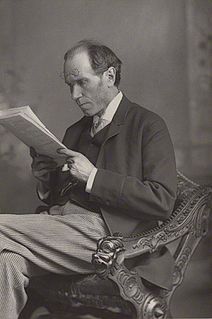A Quote by Alex Berenson
For a spy novelist like me, the Edward J. Snowden story has everything. A man driven by ego and idealism - can anyone ever distinguish the two? - leaves his job and his beautiful girlfriend behind. He must tell the world the Panopticon has arrived. His masters vow to punish him, and he heads for Moscow in a desperate search for refuge.
Related Quotes
Let us not compare Edward Snowden's situation with that of Chelsea Manning or Jeremy Hammond, who is also imprisoned in the United States. As a result of WikiLeaks' hard work, Edward Snowden has political asylum, has travel documents, lives with his girlfriend, goes to the ballet and earns substantial speaking fees. Edward Snowden is essentially free and happy. That is no coincidence. It was my strategy to undo the chilling effect of the 35 year Manning sentence and it has worked.
I put my hand out and wiped the vomit from his lips, and cooed soothing words to him. It squeezed my heart to see him suffer like this - but where my genuine concern for him ended and where my self-interest began, I could not tell: no servant can ever tell what the motives of his heart are. "Do we loathe our masters behind a facade of love - or do we love them behind a facade of loathing? "We are made mysteries to ourselves by the Rooster Coop we are locked in.
It's part of a writer's profession, as it's part of a spy's profession, to prey on the community to which he's attached, to take away information - often in secret - and to translate that into intelligence for his masters, whether it's his readership or his spy masters. And I think that both professions are perhaps rather lonely.
Tell a devout Christian that his wife is cheating on him, or that frozen yogurt can make a man invisible, and he is likely to require as much evidence as anyone else, and to be persuaded only to the extent that you give it. Tell him that the book he keeps by his bed was written by an invisible deity who will punish him with fire for eternity if he fails to accept its every incredible claim about the universe, and he seems to require no evidence what so ever.
The Miraculous Journey of Edward Tulane began with a friend giving me a rabbit doll - forgive me, Edward, for using that word; he doesn't like "doll" - for Christmas. I said, "Oh, he's lovely, what's his name?" And she said, "Edward." And a few days after I received the rabbit, who was dressed very handsomely in Edwardian kind of clothes, I saw him stripped of his finery and face down on the bottom of the ocean floor. Why? I don't know. But that's where his story began in my head.
A man vows, and yet will not east away the means of breaking his vow. Is it that he distinctly means to break it? Not at all; but the desires which tend to break it are at work in him dimly, and make their way into his imagination, and relax his muscles in the very moments when he is telling himself over again the reasons for his vow.
What a man does, that he has. What has he to do with hope or fear? In himself is his might. Let him regard no good as solid but that which is in his nature, and which must grow out of him as long as he exists. The goods of fortune may come and go like summer leaves; let him scatter them on every wind as the momentary signs of his infinite productiveness.
If it was a biopic about Glenn Greenwald, I would have immersed myself more fully in his personal life and gotten to know him as much as I could, but because it was much more about his relationship to this particular situation, to The Guardian, to Laura Poitras, and to Ewen MacAskill, and Edward Snowden, I was able to really learn a lot about him from reading his book and reading his many articles and accounts of that time.
If you saw Atlas, the giant who holds the world on his shoulders, if you saw that he stood, blood running down his chest, his knees buckling, his arms trembling but still trying to hold the world aloft with the last of his strength, and the greater his effort the heavier the world bore down upon his shoulders - What would you tell him?" I…don't know. What…could he do? What would you tell him?" To shrug.



































